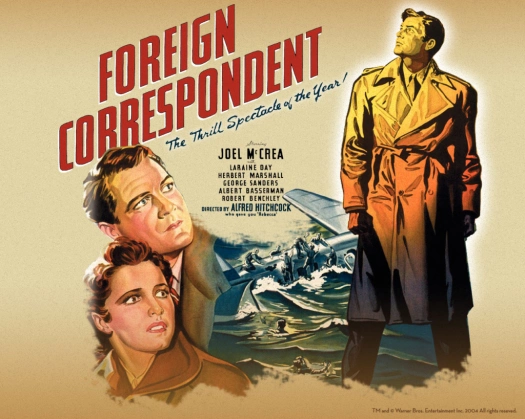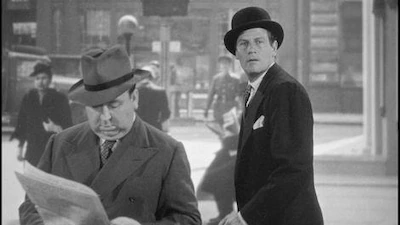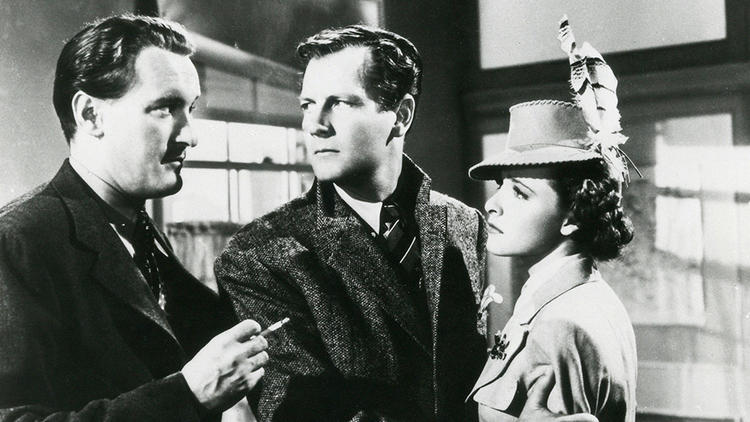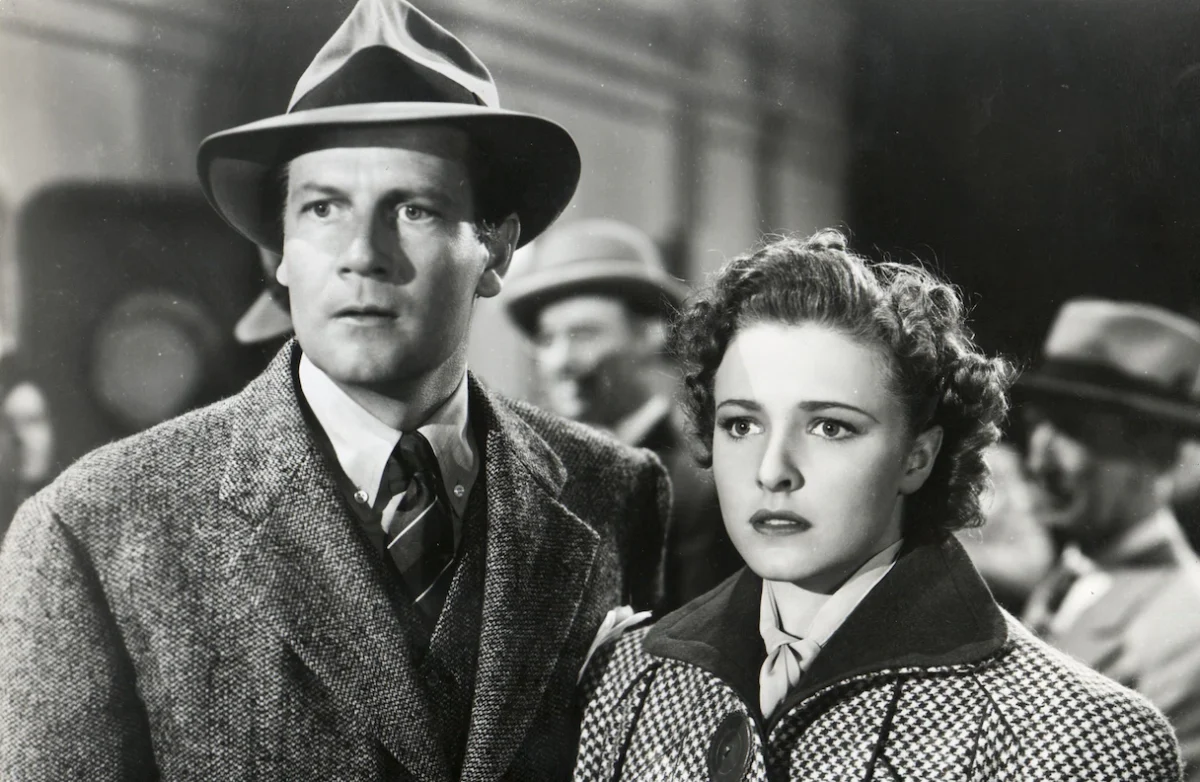Alfred Hitchcock’s second Hollywood movie, Foreign Correspondent, was released in mid-August 1940, a year after he left his native Britain to settle in Los Angeles. A spy thriller in the mould of his iconic 1935 film, The 39 Steps, it stars Joel McCrea as a hardboiled American reporter who’s dispatched to Europe on the eve of World War II, only to be ensnared in a convoluted and dangerous espionage plot.
Recently screened on the Turner Classic Movie channel, Foreign Correspondent was filmed when the United States was still a neutral power sympathetically inclined toward the Allied cause. A year-and-a-half would elapse before U.S. President Franklin D. Roosevelt abandoned neutrality and went to war with Germany and its ally, Japan.
In the interval, Propaganda Minister Josef Goebbels, a cinephile in charge of the Third Reich’s film industry, hailed Foreign Correspondent as “a masterpiece of propaganda, a first-class production which no doubt will make a certain impression upon the broad masses of the people in enemy countries.”
Though certainly not one of Hitchcock’s great films, it was nonetheless quite rousing, judging by its nomination for six Academy Awards, including best picture. Although it failed to win a single Oscar, Hitchcock had no reason to despair. His debut American film, Rebecca, won the Academy Award for best movie that year.

Foreign Correspondent, largely set in New York City, London and Amsterdam, unfolds over a short period between August and September 1939. Powers (Harry Davenport), the demanding publisher of The New York Morning Globe, believes that Europe is on the cusp of war, but thinks that his readers are in dire need of “some the facts” about the impending conflict. By inference, Powers has a low opinion of the Globe‘s resident correspondent in London, who’s been on the job for the past twenty five years.
Powers decides to sideline him and replace him with John Jones (McCrea), a cynical crime reporter who has never even visited the continent. He hopes that Jones’ fresh and enterprising reporting will solve the newspaper’s problem.
Before sending the new recruit abroad, Powers pretentiously upgrades his social status by renaming him Huntley Haverstock. He then issues his instructions. “I don’t want correspondence,” he says. “I want news.”
Jones’ first assignment is to interview Van Meer (Albert Basserman), a seasoned Dutch politician and the leader of the Universal Peace Party, which is desperately trying to avert a war. When Jones asks Powers why German Chancellor Adolf Hitler should not be on his list of interviewees, Powers remains strangely silent.
Catching up with Van Meer in London, Jones inquires whether war is imminent. Van Meer does not answer the question directly, only saying he feels sad and helpless.

During these segments, Hitchcock puts in an uncredited appearance as an owlish British passerby reading a newspaper. It was an unusual technique he would mischievously use in several future movies.
Two more characters are introduced at this juncture — Stephen Fisher (Herbert Marshall), Van Meer’s suave American representative, and his exuberant unmarried daughter, Carol (Laraine Day), who insists that she and her father are not merely “well-meaning amateurs.”
Jones follows Van Meer to Amsterdam, where he is fatally shot. Jones pursues the assassin into the Dutch countryside, which is dotted with archetypical windmills. Much to his surprise, he stumbles upon Van Meer in one of the windmills. The long and short of it is that Van Meer was kidnapped and drugged by hostile forces and that his body double was actually murdered.
Hitchcock creates a palpable mood of menace and uncertainty during the course of these scenes.
Jones, having been sucked into a maelstrom of violence and intrigue, is certain he’s on to a big unreported story. He’s prepared to share it with Scott Ffolliott (George Sanders), a British journalist. Jones realizes that Van Meer’s abductors will try to kill him because he knows the Dutchman is alive.

A romantic element is thrown into the works when Jones and Carol fall in love. Unbeknownst to them, Carol’s father is a secret agent in the employ of the enemy, which is implicitly Nazi Germany. He hires an assassin to kill Jones, but his two attempts flounder.
As the film reaches its denouement, the war breaks out and Jones boards a clipper plane bound for the United States. The aircraft is shot down over the Atlantic Ocean by Germany, and the passengers are rescued by an American naval ship. The scenes in the choppy water are vivid.
Foreign Correspondent was finished as the German Air Force began attacking British cities in what would be the Battle of Britain, a turning point early in the war.
As the film ends, Jones makes a stirring pro-British broadcast from London. “Death is coming to London,” he proclaims in a reference to German air attacks. And in a clarion call to the U.S. government, Jones exclaims, “America is the only light left in the world.”
Goebbels had no trouble detecting Foreign Correspondent‘s anti-German tilt. Like the Roosevelt administration, Hollywood was unabashedly pro-British.
